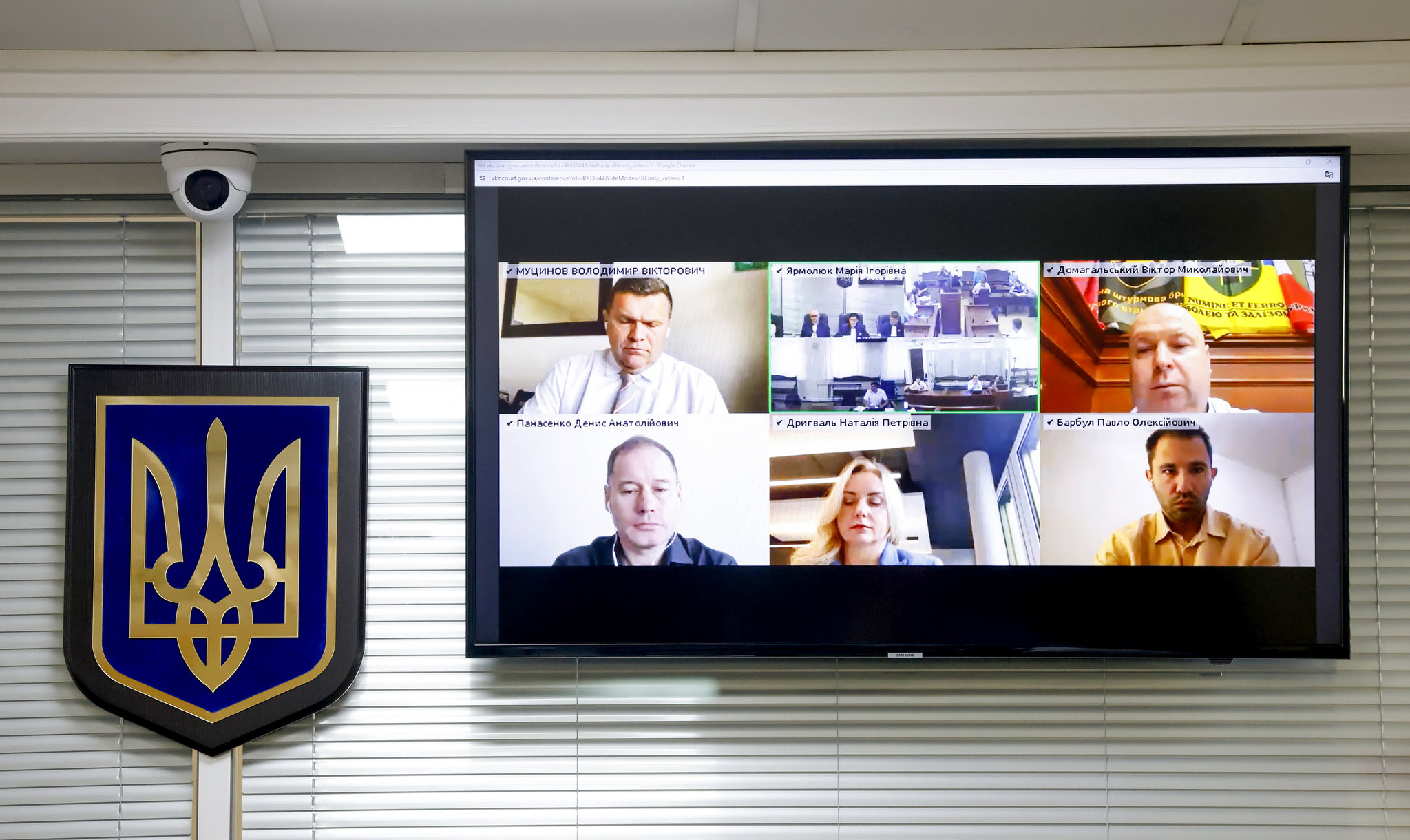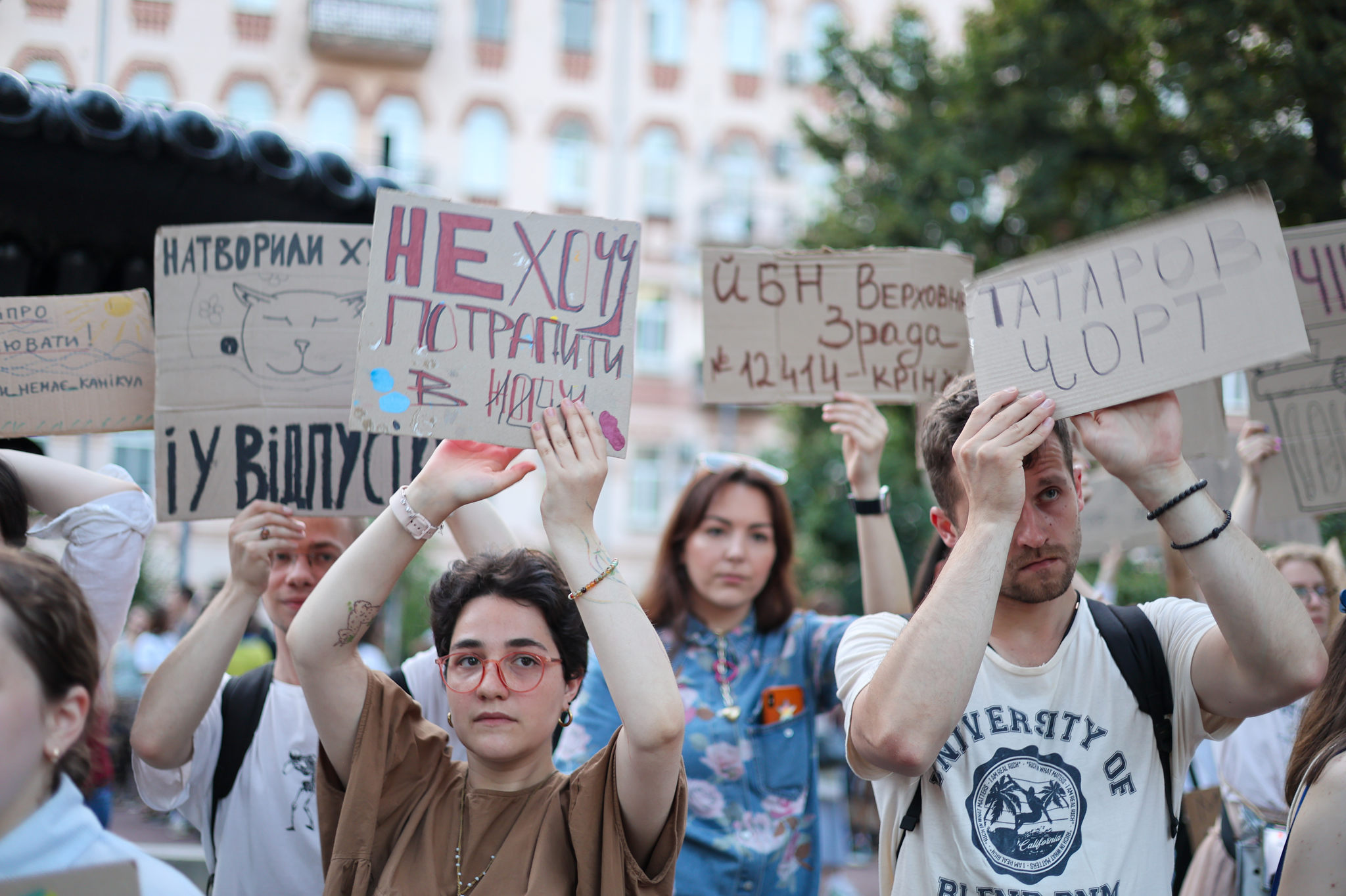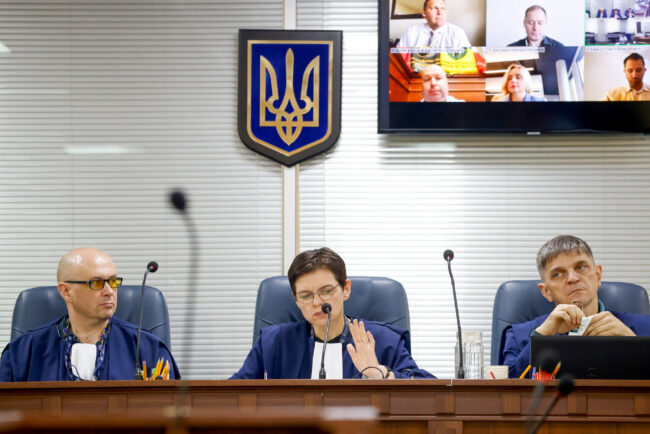KYIV, UKRAINE — In a courtroom shadowed by war, one of Ukraine’s most contentious legal battles continues to unfold. At its center is Pavlo Barbul, a former defense industry insider once praised for exposing corruption, but who has since been accused of the very crimes he once claimed to uncover. Prosecutors insist that the charges reflect systemic abuses in Ukraine’s defense trade, a sector historically marred by opaque deals and corruption scandals.
His case, spanning years and continents, has become a litmus test for Ukraine’s commitment to the rule of law during wartime. With ties to the high-profile assassination of Andriy Portnov, a controversial political figure, the trial raises the question: Where does the fight against corruption end and political retribution begin?
A whistleblower turned defendant
Barbul, born in 1987 in Odesa, led the state-owned defense intermediary SpetsTechnoExport from 2015 to 2018. That organization facilitates contracts between Ukrainian arms manufacturers and foreign governments. During his tenure, Barbul exposed alleged corruption involving company officials and intermediaries linked to high-ranking political families.
Shortly after making the allegations, Barbul himself was in the hot seat as the National Anti-Corruption Bureau of Ukraine and the Specialized Anti-Corruption Prosecutor’s Office launched criminal proceedings against him. The law exempts whistleblowers from liability for reporting corruption — if their reports are reliable and not intentionally false.
The first case, lodged in 2017, accuses Barbul of embezzling more than US$2.2 million through an agency contract with Global Marketing SP, a United Arab Emirates-registered company. A second case, lodged in 2019, involves similar allegations tied to contracts with defense enterprises, including Artem and Aviakon, and SpetsTechnoExport.
Critics note that Ukraine’s arms export sector has long been a breeding ground for graft, and argue that cases like this may be overdue attempts to address entrenched abuses. Yuriy Gudymenko, head of the Public Anti-Corruption Council under the Ministry of Defense of Ukraine, has publicly said that the defense sector is “worse than chaos” and needs radical reforms.
Barbul denies the allegations, asserting that the payments in question stem from agreements signed in 2009 — years before he became SpetsTechnoExport’s director. Barbul’s defense points out that eight state expert examinations confirmed that no financial losses were incurred by the state, but Barbul — not his predecessors at SpetsTechnoExport — remains a defendant in both cases.
It remains unclear whether Barbul personally benefited from the contracts under investigation, and no court has yet established his guilt or innocence.



Allegations of political persecution
Barbul’s legal team, led by attorney Oleksii Miagkyi, says the cases are politically motivated — a retaliation for his whistleblowing. They say the prosecutor’s team has conducted unlawful surveillance, pressured expert witnesses, and attempted to abuse international mechanisms such as Interpol alerts. His relatives have been affected by asset seizures, and there’s been a persistent media campaign portraying him as a “thief” and “traitor,” though there are no court rulings indicating that to be true.
All this despite the fact that, in 2021, Ukraine’s National Agency on Corruption Prevention granted Barbul official whistleblower status.
The Kharkiv Human Rights Protection Group and other human rights organizations have criticized the handling of Barbul’s cases. Barbul’s brief 2019 detention, the groups say, violates both Ukrainian law and the European Convention on Human Rights, citing excessive bail and judicial passivity, among other issues.
The Portnov connection
The complaint that triggered Barbul’s prosecution was filed by Portnov, a former top aide to pro-Russian then-President Viktor Yanukovych. Portnov was widely believed to have informal leverage over parts of the judiciary. His media presence and legal initiatives often targeted political opponents of the previous administration.
On May 21, Portnov was shot dead near the American School in Pozuelo de Alarcón, a suburb of Madrid, as he dropped his children off. Spanish authorities described the attack as a planned hit involving multiple assailants. Ukrainian National Police and the Prosecutor General’s Office opened a homicide case, though Spain declined to form a joint investigative team.
As of September, it’s unclear who killed Portnov.
Portnov’s death casts a shadow over the cases he initiated, including that against Barbul. While there is no direct evidence linking the two events, his assassination underscores the high-stakes environment in which anti-corruption and political influence intertwine.
Justice or retaliation?
Barbul’s lawyers say authorities ignored evidence that could exonerate him. However, anti-corruption officials argue that such defenses are common in high-level graft cases, and that public pressure often hinders investigations into defense procurement.
Meanwhile, the State Bureau of Investigation has repeatedly closed and reopened related cases concerning alleged misconduct by anti-corruption detectives, only for Ukrainian courts to overturn decisions to close investigations into unlawful actions against Barbul, citing incomplete or biased inquiries.
In February, Interpol added Barbul’s name to its wanted list, despite him having notified Ukrainian authorities of his home address.
“This is a textbook example of how anti-corruption tools can be turned into instruments of personal or political vendetta,” Miagkyi tells Global Press Journal. “My client cooperated with investigators, provided his location, and was still declared a fugitive. Meanwhile, those who orchestrated corrupt schemes years before him remain untouched.”
Requests for comment sent to the National Anti-Corruption Bureau of Ukraine, Specialized Anti-Corruption Prosecutor’s Office, and Ukraine’s High Anti-Corruption Court have gone unanswered.



A chilling effect on whistleblowers
Ukraine’s ongoing war with Russia has intensified scrutiny over defense spending and procurement.
While anti-corruption bodies have gained new powers, some warn these tools are increasingly used to silence dissent.
“If whistleblowers see what is happening to Pavlo Barbul, they will think twice before stepping forward,” says a Kyiv-based legal analyst who requested anonymity because he is not authorized to speak to the press. “The line between accountability and political revenge is becoming dangerously blurred.”
The chilling effect is already evident. According to a report by the Southeast Europe Coalition on Whistleblower Protection, fear of retaliation — including harassment, job loss and reputational attacks — continues to deter insiders from coming forward, especially in cases related to national security and military contracts.
What lies ahead?
As of September, Barbul remains abroad, his movements restricted by the Interpol notice he’s contesting. His legal team is preparing an appeal to the European Court of Human Rights, arguing that Ukraine violated his right to a fair trial and freedom of movement.
Meanwhile, Portnov’s unresolved murder adds a layer of uncertainty. The outcome of this case will test not only Ukraine’s ability to protect whistleblowers but also its resolve to hold powerful defense insiders accountable when credible allegations arise. Some observers speculate it could derail ongoing cases tied to Portnov’s influence; others fear it may intensify efforts to prosecute his former targets, to demonstrate that his legacy of pressure did not end with his death.

